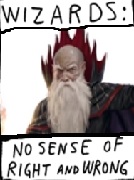No Safe Word posted:Speaking of, it was a bit of a shock to see yesterday that WotC officially partnered with Foundry: Having used both foundry and beyond, I found foundry immensely squiggly to deal with. Beyond is just an immeasurably better UI at least for players.
|
|
|
|
|

|
| # ? Jun 5, 2024 19:49 |
No Safe Word posted:Speaking of, it was a bit of a shock to see yesterday that WotC officially partnered with Foundry: Well this is extremely germane to my interests. Saw the Foundry 5e update to 3.0.0 last night, was probably due to this, pretty cool.
|
|
|
|
|
Hieronymous Alloy posted:Having used both foundry and beyond, I found foundry immensely squiggly to deal with. Beyond is just an immeasurably better UI at least for players. As a character management system yeah foundry sucked for dnd5e, in fact the recommended way to do any character was to build it in dndb and then import it via the import module But the VTT itself is pretty great once you learn it.
|
|
|
|
Rubberduke posted:Being mad at Chinese things often smells like a racist dog whistle to me, even if Tencent is an obviously poo poo company. So this article might just be an attempt at generating clicks through nerd rage. the original source is a Chinese article
|
|
|
|
Raenir Salazar posted:Tencent has stakes in a lot of companies including Riot, Epic Games, Paradox, Kadokawa, and many others. I think it isn't obvious to me what the quality of whatever they put out would be.
|
|
|
|
I really just can't believe the timing of this official Beyond+Foundry partnership and them dropping Phandelver/Shattered Obelisk to go with it. Like absolutely perfect for my needs, and within a day or two of deciding how I was going to do all this. It's 100% exactly what I wanted: Foundry easy button ready to go. Expanded starter set with plenty of content for my little group. And the guide in this module has a TON of helpful content about Foundry itself, which is making this a lovely experience. This crazy coincidence took me from 10% ready to like 90% ready overnight. I was sitting here figuring out how I was going to get some content in, and I wake up the next morning and I have a 12-level module ready to go for me.
|
|
|
|
|
Bad Munki posted:I really just can't believe the timing of this official Beyond+Foundry partnership and them dropping Phandelver/Shattered Obelisk to go with it. Like absolutely perfect for my needs, and within a day or two of deciding how I was going to do all this. It's 100% exactly what I wanted: Foundry easy button ready to go. Expanded starter set with plenty of content for my little group. And the guide in this module has a TON of helpful content about Foundry itself, which is making this a lovely experience.
|
|
|
|
Oh, I'm sure, the community contribution scene is immense, but trying to learn on too many axes at once is frustrating. This gives me just what I needed right when I needed it. We'll run this pre-baked thing and by the time that's over, I should be very ready to wade into the rest of it, if not sooner.
|
|
|
|
|
I'm glad for Foundry that they officially have WotC support for the D&D system module, but I'm not excited about having to purchase books in Foundry and D&D Beyond, especially with the 2024 core rulebook update on the table. Any of you who have used the DDB importer module know that the information scraping is far from perfect already. It working at all is contingent on DDB maintaining the API that the module uses to scrape. I can't imagine WotC keeping that API alive now that they own DDB and have an official partnership with one of the largest beneficiaries of importing owned DDB content.
|
|
|
|
Man if only there was a way to get 5e stuff into foundry not tied to DDB. Would be perfect to put on some sort of "tools" for 5e site
|
|
|
|
This is more lore-related than game-related but I was talking with someone about the way that the faithless are apparently treated in the Forgotten Realms afterlife and how little faithless make sense in a setting where the gods obviously exist as evidenced by every Ilmater temple in every small town being able to fix your broken arm instantly. Has there ever been a canon group of people dedicated to destroying the gods? The only "faithless" that would really make sense in Forgotten Realms are Bakunin-style "If God existed it would be required to abolish him" anti-theists angry about how mortals are used as pawns by gods. On one hand it's an interesting idea, on the other hand there aren't many authors I would trust to handle the topic, let alone rando DMs.
|
|
|
|
22 Eargesplitten posted:This is more lore-related than game-related but I was talking with someone about the way that the faithless are apparently treated in the Forgotten Realms afterlife and how little faithless make sense in a setting where the gods obviously exist as evidenced by every Ilmater temple in every small town being able to fix your broken arm instantly. Has there ever been a canon group of people dedicated to destroying the gods? The only "faithless" that would really make sense in Forgotten Realms are Bakunin-style "If God existed it would be required to abolish him" anti-theists angry about how mortals are used as pawns by gods. On one hand it's an interesting idea, on the other hand there aren't many authors I would trust to handle the topic, let alone rando DMs. The Athar from Planescape are a faction in the outer planes which are dedicated to the idea that "divinity" is essentially a con, and that none of the so-called gods are worthy of worship, indeed that they're worthy only of contempt. Particularly powerful Athar don't believe in the gods so hard that clerical magic can have a chance to just fail in their vicinity. Lots of Athar believe there is a real God that exists completely removed from the Multiverse, and the powers that exist on the outer planes that call themselves Gods are siphoning the real god's power to fuel their magic. Seperate to that, there's been several crusades against the Wall of the Faithless, seeking to tear it down. Neverwinter Nights 2: Mask of the Betrayer is all about the wall and the history of those crusades. The real tragedy of the Wall, as I see it, is that most Faithless wouldn't be principled opponents of divinity, they'd be people who feel like the gods forsook them and who swore them off in grief and anger. People who couldn't take "you'll see them again in the afterlife" for an answer on the death of a loved one, people whose livelihoods had been destroyed by misfortune. For those who sank further and further into that depression and never came out and found their faith again, what awaits them at the end of that road is an eternity of anguish and misery as a brick in a wall. It's been softly implied that the Wall has been entirely retconned out of the Forgotten Realms. An errata for the Sword Coast Adventurer's Guide removed the only reference to the wall in a published 5e work, but there's never been an official confirmation of what that means, if the wall was torn down in the second sundering or if it's now just declared to have never existed.
|
|
|
|
22 Eargesplitten posted:This is more lore-related than game-related but I was talking with someone about the way that the faithless are apparently treated in the Forgotten Realms afterlife and how little faithless make sense in a setting where the gods obviously exist as evidenced by every Ilmater temple in every small town being able to fix your broken arm instantly. - "Sure, the gods are real. But all that stuff that clerics say about afterlife? It's just stuff made up to make us behave as they want. Wake up sheeple!" - "Right, the afterlife. I'll have all the time to search my perfect patron god later, I have all my life before me after all." - "I don't care about the gods. I'll do as I want, I don't need any stinky god tell me what I should or I shouldn't do." YggdrasilTM fucked around with this message at 10:42 on Feb 2, 2024 |
|
|
|
Reveilled posted:The Athar from Planescape are a faction in the outer planes which are dedicated to the idea that "divinity" is essentially a con, and that none of the so-called gods are worthy of worship, indeed that they're worthy only of contempt. Particularly powerful Athar don't believe in the gods so hard that clerical magic can have a chance to just fail in their vicinity. Lots of Athar believe there is a real God that exists completely removed from the Multiverse, and the powers that exist on the outer planes that call themselves Gods are siphoning the real god's power to fuel their magic. That sounds pretty gnostic
|
|
|
|
Dexo posted:Man if only there was a way to get 5e stuff into foundry not tied to DDB. Would be perfect to put on some sort of "tools" for 5e site These theoretical tools might require a bit of time to be updated for the new system however. But I was able (with some work) to pretty nicely recreate a bunch of the homebrew stuff my group uses (custom races, custom classes/subclasses, entirely different feat system, etc.), without having to write any code or anything so that is cool.
|
|
|
|
YggdrasilTM posted:- "Just because you can use magic to fix my arm, doesn't mean there is some 'god' giving you powers. There are no 'gods". You are just a fancy sorcerer." -Dude, Torm was just here yesterday. -My man, we just traveled to the afterlife via portal last tenday. -Bro, remember we're here to get your arm fixed because you got mauled by an owlbear again. -Dogg, just worship Beshaba then. She doesn't care what you do. 22 Eargesplitten posted:This is more lore-related than game-related but I was talking with someone about the way that the faithless are apparently treated in the Forgotten Realms afterlife and how little faithless make sense in a setting where the gods obviously exist as evidenced by every Ilmater temple in every small town being able to fix your broken arm instantly. Has there ever been a canon group of people dedicated to destroying the gods? The only "faithless" that would really make sense in Forgotten Realms are Bakunin-style "If God existed it would be required to abolish him" anti-theists angry about how mortals are used as pawns by gods. On one hand it's an interesting idea, on the other hand there aren't many authors I would trust to handle the topic, let alone rando DMs. In the books where the Wall comes from, Cyric tries to justify his crusade to kill the other gods along those lines. Of course, he really just wants more worshipers of his own. Those books paint all the gods as petty jerks. I think that's their intention. Mystra and Kelemvor try to be humane and decent deities, and they get in trouble with AO and the other gods for doing so. They put Cyric on trial for all the crazy evil poo poo he does, and he gets acquitted because he's the god of doing crazy and evil poo poo. I should also note that "the gods are just really powerful jerks who maybe deserve to be blown up" is the premise of the first Pillars of Eternity game.
|
|
|
|
PeterWeller posted:-Dude, Torm was just here yesterday. - Actually rare event? How many common people have seen the avatar of a god in current Forgotten Realms - even this. Planar travel is, I think, high level adventurer only stuff. - I'm sure that fear of death will scare straight people. That's why in real life nobody smokes or drinks or violate safety procedures. - Eh, I guess. YggdrasilTM fucked around with this message at 18:06 on Feb 2, 2024 |
|
|
|
"I know you successfully used Divine Intervention to resurrect someone, your god LITERALLY came down on high to do us a favor, but uhhhh what if it was just a coincidence, huh?"
|
|
|
|
I don't understand these objections. The point was "you can't be faithless in the FR". Sure, it's mich, much harder to be faithless for an adventurer, but a random guy that lives in a village of 200 people never saw a 12 level cleric casting divine intervention.
|
|
|
|
Also faith is just something you believe in. If I saw a God come down from on high to resurrect someone that's just magic which exists. It's not like mortals haven't obtained high enough levels of power to revive people before. Being a faithless person in the forgotten realms is just sort of like being the ultimate hater. "I mean like yeah Mystara is powerful and all but she ain't no god..."
|
|
|
|
YggdrasilTM posted:- Actually rare event? How many common people have seen the avatar of a god in current Forgotten Realms - Mystra regularly visits her various temples to personally check up on things. I'm sure she's not the only one. Also, the Time of Troubles was just over a century ago and the Second Sundering was just a decade or so ago in the current timeline, so a lot of people have personally met avatars and chosen. - Entire cities have been transported to Avernus and other outer planes in living memory. Also, there are just tons of portals scattered around Faerun. - That's fair. My original line was going to be "Bro, we had to get a cleric to cast Raise Dead on you last year." - Worship and faith in FR aren't morality things like with contemporary Western religions. They're more akin to Classical polytheism where you're gonna pray to Sune because you're going on a blind date and she's the goddess of love. YggdrasilTM posted:I don't understand these objections. The point was "you can't be faithless in the FR". Sure, it's mich, much harder to be faithless for an adventurer, but a random guy that lives in a village of 200 people never saw a 12 level cleric casting divine intervention. It's a very cosmopolitan world. That dude has probably visited more than one major city. He's had a good chance of at least seeing an avatar or chosen doing something divine.
|
|
|
|
Dexo posted:Also faith is just something you believe in. I've always felt the problem with this is that it requires an outside context definition of "god". Like, Mystra's definitely one of a kind of thing, the same way Human is a kind of thing, and Elminster is one, the same way your pet Snowshoes is a cat, your friend Elara is an elf. The word for the kind of thing Mystra is, is "god". "I don't want to worship the gods" makes sense to me, "mystra isn't a god" strikes me as a little silly, it's like declaring that your friend Elara isn't an elf because she doesn't spend her time making toys at the north pole. I think to come to that conclusion you need to a) have a definition of "god" that Mystra doesn't fit, and b) have an explanation of why you've decided to adopt that definition, even though it disagrees with literally everyone else's definition.
|
|
|
|
The only people in the forgotten realms who would give a drat about any of that would be people who study or care about that stuff. Just some normal rando is not going to care that much about the dictionary definition of some powerful entity or person doing some grant feat. Not everyone is a completely rational actor Some people just want to hate. Especially since it's possible for Mortals to become gods.
|
|
|
|
Reveilled posted:I've always felt the problem with this is that it requires an outside context definition of "god". Like, Mystra's definitely one of a kind of thing, the same way Human is a kind of thing, and Elminster is one, the same way your pet Snowshoes is a cat, your friend Elara is an elf. The word for the kind of thing Mystra is, is "god". "I don't want to worship the gods" makes sense to me, "mystra isn't a god" strikes me as a little silly, it's like declaring that your friend Elara isn't an elf because she doesn't spend her time making toys at the north pole. I think to come to that conclusion you need to a) have a definition of "god" that Mystra doesn't fit, and b) have an explanation of why you've decided to adopt that definition, even though it disagrees with literally everyone else's definition. nah. all you need is a pre-existing concept for "super powerful magic user" and it immediately becomes clear they all slot cleanly into it. must just be super powerful magic users. like where is the difference between elminster and mystra for jonicus dirtfarm.
|
|
|
|
Dexo posted:Some people just want to hate. And this basically describes Cyric: a mortal who hates the gods and became himself a god. I should also note that the Wall being this divine gotcha "oh you thought you were worshiping Torm but that was actually just a demon loving with you" thing was how it worked when the god of death was an evil prick named Jergal, Myrkul, or Cyric. Under neutral chill dude Kelemvor it became a thing where you had to actively reject the very existence of gods to get Walled. Now it's like if you committed your life to protecting the weak, Torm is gonna come grab you and take you to Mount Celestia for your eternal just rewards even if you never heard of him.
|
|
|
|
I think a "atheist" just isn't a very likely outlook in a world like FR. Even if you have never personally seen a god, they drive recent history and events are documented around their movements. Like of course it's possible, humans are wild like that, but being an atheist in Faerun is like being a flat earther in our own world. I think the point that someone might style themselves as opposed to the gods is pretty likely though, that you resent their interference and wish they weren't around and frankly you'd do a better job if you were in charge. In fact FR seems to have plenty of stories in that vein.
|
|
|
|
the problem is "faith" makes no sense in such a setting to begin with and is glaringly obviously a holdover from the writers' own cultural milieu, along with e.g. every religious org being styled like a Christian church despite the world being openly and obviously and metaphysically literally polytheistic. which is also why the forgotten realms pantheon has "actually just the Christian god and he doesn't grant powers and you do have to just kind of believe on faith" at the top of its hierarchy too.
Valentin fucked around with this message at 19:07 on Feb 2, 2024 |
|
|
|
The thing that's always bothered me about D&D religion is that it's a polytheistic religion where the different deities are mutually evangelical, even when they're not straight up opposed. Like, as a cleric or paladin you're supposed to go around trying to get people to devote themselves to Pelor or Tempus or whatever, rather than just serving the requirements of their domain. The 3.5 PHB2 even suggests you have tracts printed to pass out!
|
|
|
|
Also Faithless donít necessarily need to think the gods are not gods, they just have to think they are not worthy of their faith. Someone who never offers an offering or prayer to any of the gods during their life would be considered Faithless. The False are also another group, people who did follow or pay respects to the gods, but never backed it up by following the teachings of those gods. As a result they donít get claimed on the Fugue Plane after death. Might as well add the Fugue Plane and sorting is FR original, other D&D settings use different things.
|
|
|
|
Just think of how many deeply stupid people there are here in the real world. There's gotta be at least that many in Faerun. Probably a lot more.
|
|
|
|
Caphi posted:The thing that's always bothered me about D&D religion is that it's a polytheistic religion where the different deities are mutually evangelical, even when they're not straight up opposed. Like, as a cleric or paladin you're supposed to go around trying to get people to devote themselves to Pelor or Tempus or whatever, rather than just serving the requirements of their domain. The 3.5 PHB2 even suggests you have tracts printed to pass out! With FR at least, itís expected for people to give thanks and offerings to the various gods as the situation demands, with only small numbers taking a direct patron god. And even those with a direct patron are expected to still give prayers and offerings to others. Like a Paladin of Torm, God of Duty, taking a boat across the sea will be expected to make a offering to Umberlee, Goddess of the sea, to ask that the seas be calm for the trip.
|
|
|
|
in some respects more like catholic saints if they were tetchy and you didn't believe there was an actual god empowering them (even though, again, there is lol) than gods, really. Oh yeah I say a prayer to st. christopher when I travel and I light a candle for st. raphael when the kids are sick. The local lathanderan brothers make great ale. etc.
|
|
|
|
Valentin posted:the problem is "faith" makes no sense in such a setting to begin with and is glaringly obviously a holdover from the writers' own cultural milieu, along with e.g. every religious org being styled like a Christian church despite the world being openly and obviously and metaphysically literally polytheistic. which is also why the forgotten realms pantheon has "actually just the Christian god and he doesn't grant powers and you do have to just kind of believe on faith" at the top of its hierarchy too. You're right that "faith" is nonsensical in a setting with direct evidence of divine intervention around nearly every corner, but FR's temples and churches aren't all like that. There are religions who proselytize, like Lathander's, and religions that don't, like Malar's. It really depends on what the god's portfolio is. Also, AO or the "High God" exists in AD&D cosmology as an attempt to defuse satanic panic. And you don't need to have any kind of faith or belief in him. He even explicitly rejected worshipers in the aftermath of the Time of Troubles, telling them to choose one of the many "normal" gods instead. Yusin posted:With FR at least, itís expected for people to give thanks and offerings to the various gods as the situation demands, with only small numbers taking a direct patron god. And even those with a direct patron are expected to still give prayers and offerings to others. Everybody does have a patron god who aligns most closely with their own values, but yeah, you don't worship your patron exclusively, even if you're one of their mortal agents invested with divine power. Valentin posted:in some respects more like catholic saints if they were tetchy and you didn't believe there was an actual god empowering them (even though, again, there is lol) than gods, really. Oh yeah I say a prayer to st. christopher when I travel and I light a candle for st. raphael when the kids are sick. The local lathanderan brothers make great ale. etc. Well, that's because Catholic saints are mostly a way to syncretize local and pagan gods into Christian theology.
|
|
|
|
Caphi posted:The thing that's always bothered me about D&D religion is that it's a polytheistic religion where the different deities are mutually evangelical, even when they're not straight up opposed. Like, as a cleric or paladin you're supposed to go around trying to get people to devote themselves to Pelor or Tempus or whatever, rather than just serving the requirements of their domain. The 3.5 PHB2 even suggests you have tracts printed to pass out! The gods derive their powers from the prayers of their faithful. If you're an ambitious god trying to climb the social ranks, you need more followers.
|
|
|
|
PeterWeller posted:You're right that "faith" is nonsensical in a setting with direct evidence of divine intervention around nearly every corner, but FR's temples and churches aren't all like that. There are religions who proselytize, like Lathander's, and religions that don't, like Malar's. It really depends on what the god's portfolio is. "styled like" is not the same as "they are christian proselytizers"? like many of them are organized along obviously christian monastic lines also you're misreading the implied part of my statement, which is not "you must worship ao" but "if you do worship ao you would have to" PeterWeller posted:Well, that's because Catholic saints are mostly a way to syncretize local and pagan gods into Christian theology. i think there's a lot of ways to say this general thing that are true but you picked like the one specific phrasing that isn't lmao
|
|
|
|
A Roman walking through the countryside in 200 BC comes across a temple at a sacred spring. Pilgrims come here from time to time, and the locals as they can afford it. There is a permanent structure around the spring, another a short distance away with various dedications that has been funded by local elites, and a wooden house where a priest lives. You are invited to make a dedication to Fontus, god of wells and springs - if it is at or near Fontinalia (October 13) there will be many people, from near and far, gathering for a festival. Most any Roman of any means would stop and pray. Those with some money might purchase a broach, or use one of their own: ritually destroy it by bending it and casting it into the spring, as an offering. Few of the attendees would count Fontus as "their god." Perhaps the attendant priest only. Even the locals who depend on this water likely would not think of Fontus as important or central enough in their lives. This is how actual pantheons worked. Sure, Viking warriors wore a Thor hammer neclace, they were going to war and Thor's strength was vital to their success. Sure, egyptians viewed Amun-Ra as paramount and central to worship and daily life, with enormous and fabulously expensive monuments erected to the sun king. But people who actually lived with pantheons didn't focus on one god only as a normal practice, they gave some level of attention to every god that was relevant to them or their surroundings or situation, and at least believed in all of them, to some degree. I'm sure there were atheists even then, although they likely kept their drat mouths shut if they knew what was good for them. And there were foreigners, with their foreign gods, whose existence may or may not have been actively denied by the locals, or regarded as misnamed equivalents, or confused derivatives. The vast majority of people were illiterate and few had a comprehensive, complete and consistent organization of their pantheon in their heads - that was something maybe nerds at the temple bothered with, but your everyday Sumerian didn't necessarily know off the top of their head how Nisaba was related to Ninlil... and a process of syncretization, in which gods morphed or merged or split over centuries, was common too. D&D's rigid concepts of pantheons and worship I think come from the fact that they're written down in official, canonical books that persist over the entirety of a player's experience with a given setting. I think there's too much emphasis on the "realness" of divine magic and visitation in the setting as proof of divinity and the cosmological order: many people living in ancient times with pantheons would have attested with just as much vigor that they or their neighbors has directly witnessed divinity and divine magic. For example, Sumerians routinely hired magicians to help rid their homes of the lingering ghosts of their ancestors, who were bothering them and hadn't been successfully forced to move on to the afterlife. Everyone knew that was real, their own personal experiences validated it. That's kind of how faith works! The idea of faith only being real if it comes without any evidence is a modern, very Christian construction that isn't historical. Today, lots of people adamantly believe in ghosts, and insist that that belief is based on evidence. To an ancient person, attestation and witness is identical to "evidence," there is no distinction. Linguistically or conceptually. I think a D&D game setting is more compelling and interesting, and roleplay more interesting, if you can get more into that mindset. Did you witness literally Mystra visiting the temple last month? Yes. From a player/GM meta perspective, was that really Mystra, or just a mortal person in costume, playing a role as part of a sacred ritual? Maybe yes, maybe no, and maybe it's important to decide that in a particular encounter as the PCs start slinging magic around or get involved in a plot that directly involves a god. But the PCs and the GM should both endeavor to treat the question as external to the game only, and give their characters no mental room to interrogate that idea. Even a character who notices a celebrant getting into costume before the ritual might still fully and faithfully believe that, later, that person is literally Mystra. Why shouldn't a god inhabit a mortal for the purpose of visitation? There are games that do this more thoroughly and immersively, like RuneQuest/Glorantha, and maybe I'm being influenced by them; it's not actually wrong to play D&D as a game where evidence and proof, magically verified by mage-science, are popularly understood in a modernish way and someone who tried to discount or disbelieve in the divinity of a "god" is making a justifiable semantic or philosophical distinction that other people could entertain and discuss: the social and linguistic frameworks are there for you to use if you want them. But I think if you want to play a game where the people in the world engage with their pantheon in a way similar to those historical societies that had pantheon religions, you can regard that sort of discussion or distinction as not just bizarre or very rare, but unsupportable by the language and thought processes of the people who live in that world.
|
|
|
|
PeterWeller posted:
Well most don't even choose a patron. One of them that they most closely matched would claim them after death. Like a farmer would likely pray to fair number of different gods over his life, but primarily Chauntea Goddess of Agriculture, and unless his beliefs highly clashed with her, she would be the one most likely to claim him.
|
|
|
|
Yusin posted:Well most don't even choose a patron. One of them that they most closely matched would claim them after death. Like a farmer would likely pray to fair number of different gods over his life, but primarily Chauntea Goddess of Agriculture, and unless his beliefs highly clashed with her, she would be the one most likely to claim him. What if someone could equally be claimed by multiple gods. How do they decide who gets them? Is there like a waiver wire?
|
|
|
|
They cut the soul in half.
|
|
|
|

|
| # ? Jun 5, 2024 19:49 |
|
The sumerians, greeks, romans, and egyptians all had gods of death/the underworld who claimed most or all souls. Vikings went or didn't go to Valhalla or the often forgotten and ignored by westerners Folkvangr, a parallel hall for those not bound to Hel and who are more bound to Freya than Odin. I'm not like an expert on religions but I don't know of any where every god had its own exclusive afterlife that claimed the souls that "belonged to them." It seems to be exclusively a fantasy construct, that I would guess D&D borrowed from one or more of its fantasy influences? It certainly creates some problems.
|
|
|
































